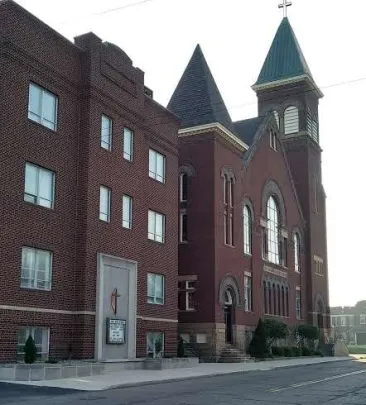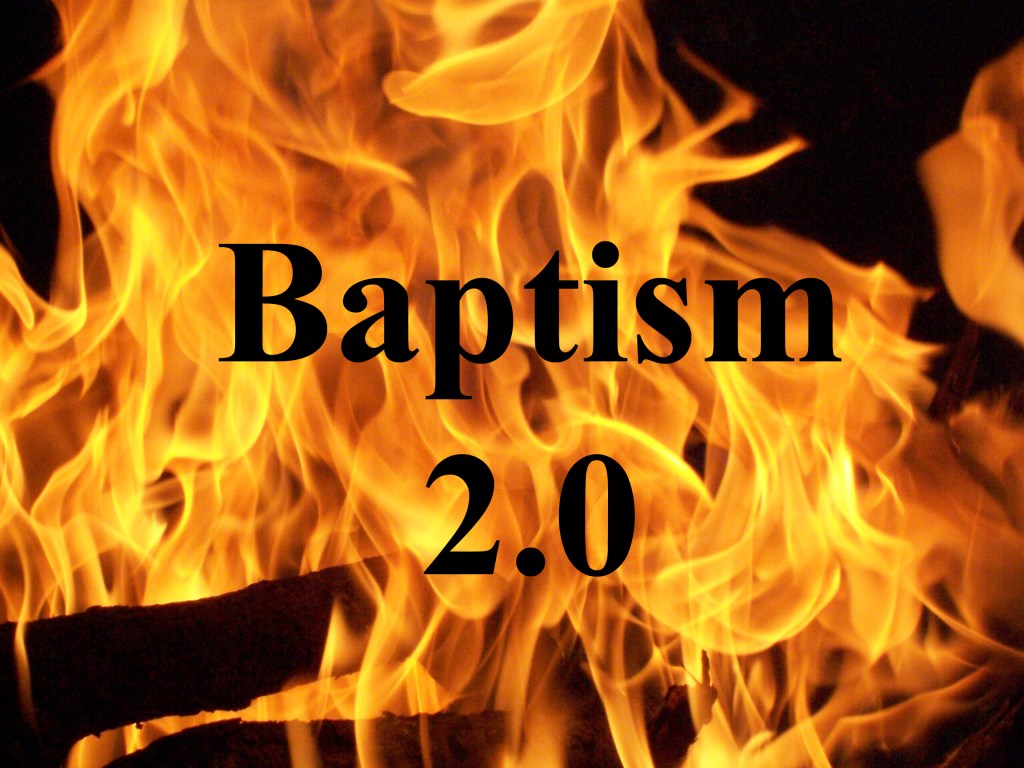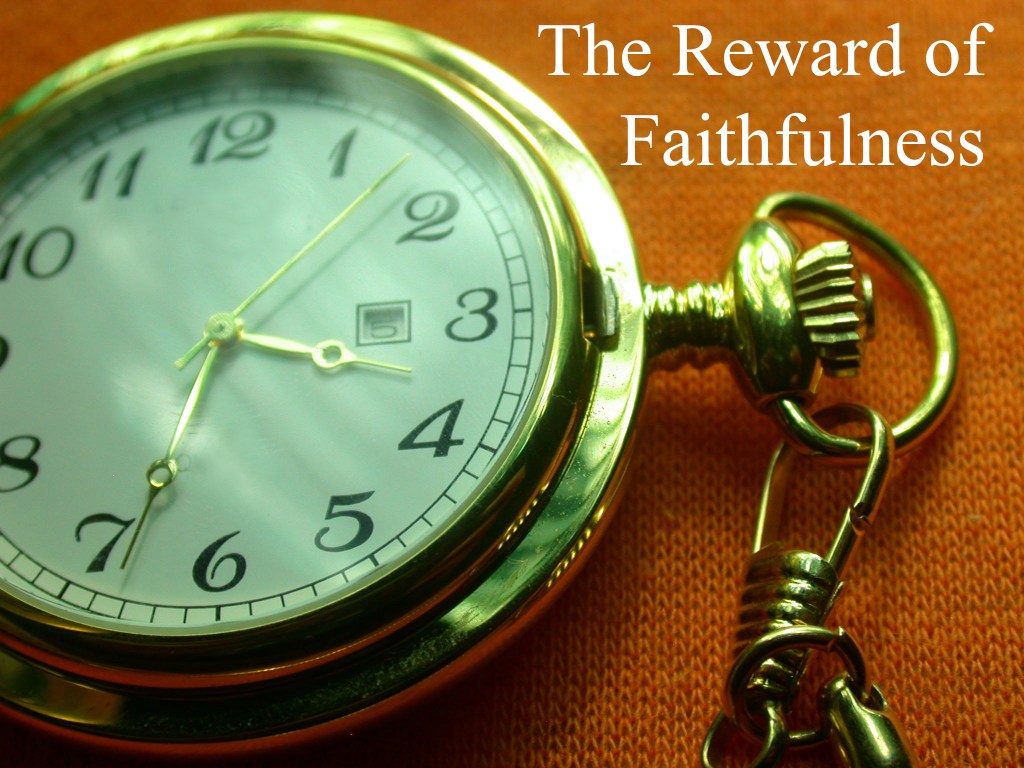Rights, Truth, or Distraction?
January 28, 2024*
By Pastor John Partridge
Deuteronomy 18:15-20 Mark 1:21-28 1 Corinthians 8:1-13
I hear voices.
Seriously, every day I hear voices.
But so do you.
Every day we hear voices and opinions on the news, on social media, and in real life. We hear talking heads that give us opinions labeled as entertainment, we have news reporters that inject their opinions into the news, we have political parties of the left, right, and center that would argue that the sky isn’t blue if they thought it would win them votes, we watch wars from a distance and hear voices from factions from around the world spewing widely different points of view, and just about every major news story has a conspiracy theory to go with it. These voices offer us a cacophony of noise that makes us wonder where we might find the truth and might even make us doubt our own sanity.
But, although the stories behind the voices might be different, our struggle is not much different than that faced by the people of the Old and New Testaments. They too heard the voices of different opinions, different religions, different factions within their own religion, and similar arguments between their politicians, rulers, and foreign powers. The world is, and has been, filled with voices and opinions and the challenge that we face is choosing those voices to which we will listen, and discerning the truth from among the noise. Of course, we could spend months of sermons, and volumes of reading and study to even begin to dig through it all, but since this is both a new and an ancient problem, we find that scripture gives us guidelines that can help us. We begin in another time of confusion. As Israel prepared to enter the Promised Land, they worried what would happen to them, and who would lead them, if Moses did not go with them, and for that matter, if Moses, who was already old, were to die. And in Deuteronomy 18:15-20, we hear an answer from Moses that answered some of their questions but also some of ours when he says:
15 The Lord your God will raise up for you a prophet like me from among you, from your fellow Israelites. You must listen to him. 16 For this is what you asked of the Lord your God at Horeb on the day of the assembly when you said, “Let us not hear the voice of the Lord our God nor see this great fire anymore, or we will die.”
17 The Lord said to me: “What they say is good. 18 I will raise up for them a prophet like you from among their fellow Israelites, and I will put my words in his mouth. He will tell them everything I command him. 19 I myself will call to account anyone who does not listen to my words that the prophet speaks in my name. 20 But a prophet who presumes to speak in my name anything I have not commanded, or a prophet who speaks in the name of other gods, is to be put to death.”
Moses’ answer is both good news and bad news. God promises that his people will continue to hear his voice through leaders and prophets that he would send and that he will continue to lead them. That’s the good news. The bad news is that there would also be other voices, from other people, that God did not send. Even worse is that some of those other voices would claim to be prophets sent from God and would claim to speak for God. For obvious reasons, that’s not good. False prophets could have any number of motivations, but as we’ve seen often enough in the twentieth and twenty-first centuries, cult leaders and televangelists enriching themselves at the expense of faithful, though gullible believers is a very real possibility. But from the realms of everyday living to politics, listening to the voices of false prophets could be disastrous. This is so important, that the punishment for these charlatans isn’t just that they should be ignored, imprisoned, cast out, exiled, or excommunicated from the community, the punishment for pretending to speak for God … was death. God wasn’t playing around because the lives of his people, and the hope of his nation were at stake.
In contrast, as we read the story of the gospel in Mark 1:21-28, we see how the people reacted to Jesus in comparison to the preachers and politicians with whom everyone was familiar.
21 They went to Capernaum, and when the Sabbath came, Jesus went into the synagogue and began to teach. 22 The people were amazed at his teaching, because he taught them as one who had authority, not as the teachers of the law. 23 Just then a man in their synagogue who was possessed by an impure spirit cried out, 24 “What do you want with us, Jesus of Nazareth? Have you come to destroy us? I know who you are—the Holy One of God!”
25 “Be quiet!” said Jesus sternly. “Come out of him!” 26 The impure spirit shook the man violently and came out of him with a shriek.
27 The people were all so amazed that they asked each other, “What is this? A new teaching—and with authority! He even gives orders to impure spirits and they obey him.” 28 News about him spread quickly over the whole region of Galilee.
It was evident by the tone and tenor of Jesus’ teaching that he was different. He did not equivocate. He did not hedge. He did not express opinions or discuss possibilities or probabilities. Unlike the other preachers and teachers that everyone had heard, Jesus taught as if he knew what he was talking about and as if he had the authority to back up his words. And not only did Jesus preach and act as if he knew what God wanted, he demonstrated God’s power by healing the sick and the lame, raising the dead, and casting out demons. Jesus was the real deal and the people who saw him knew it because he spoke like it, lived like it, acted like it, and demonstrated it.
But how does that translate to us? What advice does scripture have that can help us to discern the truth and find guidance as we listen to the conflicting voices that we hear every day?
For that, let us once again turn to the writings of the Apostle Paul in his first letter to the church in Corinth. Reading from 1 Corinthians 8:1-13 we hear this instruction and advice:
8:1 Now about food sacrificed to idols: We know that “We all possess knowledge.” But knowledge puffs up while love builds up. 2 Those who think they know something do not yet know as they ought to know. 3 But whoever loves God is known by God.
4 So then, about eating food sacrificed to idols: We know that “An idol is nothing at all in the world” and that “There is no God but one.” 5 For even if there are so-called gods, whether in heaven or on earth (as indeed there are many “gods” and many “lords”), 6 yet for us there is but one God, the Father, from whom all things came and for whom we live; and there is but one Lord, Jesus Christ, through whom all things came and through whom we live.
7 But not everyone possesses this knowledge. Some people are still so accustomed to idols that when they eat sacrificial food, they think of it as having been sacrificed to a god, and since their conscience is weak, it is defiled. 8 But food does not bring us near to God; we are no worse if we do not eat, and no better if we do.
9 Be careful, however, that the exercise of your rights does not become a stumbling block to the weak. 10 For if someone with a weak conscience sees you, with all your knowledge, eating in an idol’s temple, won’t that person be emboldened to eat what is sacrificed to idols? 11 So this weak brother or sister, for whom Christ died, is destroyed by your knowledge. 12 When you sin against them in this way and wound their weak conscience, you sin against Christ. 13 Therefore, if what I eat causes my brother or sister to fall into sin, I will never eat meat again, so that I will not cause them to fall.
10 The fear of the Lord is the beginning of wisdom;
all who follow his precepts have good understanding.
To him belongs eternal praise.
The first two verses contain an easily overlooked, but important tidbit. If we word it with a slightly more common phrasing, what we hear is, “Some people think that they know something, but until they understand how to love, they don’t know as much as they think that they do.” Let me say that again, “Some people think that that they are pretty smart, but until they understand how to love, they aren’t as smart as they should be.” And that is what is at the core of the rest of the passage.
In Corinth there was a disagreement among believers about whether it was okay to eat meat that had been sacrificed to idols. In Greece, much like it was in Israel, particularly without refrigeration, most people simply did not eat meat that often. Even if you wanted to eat meat, it was rare that you would want to butcher an entire animal. But there were meat markets in a city as large as Corinth. The problem was that much of the meat that was available for sale, came to the butcher after it had been sacrificed on some pagan altar.
Some believers felt that it was sinful to eat meat that had been sacrificed to a pagan god, but others believed that since pagan gods weren’t real, that it didn’t matter, that it wasn’t sinful, and it was fine for them to eat such meat. But Paul, strict as he was in his Jewish practice, says that even though he agrees that it isn’t sinful, and that believers have every right to eat it, it still might be wrong to exercise that right if doing so weakens, or damages, the faith of another believer. Paul says that when you exercise your rights in such a way that you hurt people and tempt them to do what they believe to be sin, then you destroy them, and you commit sin against Jesus. Paul’s conclusion is that he would rather give up meat forever than to cause a brother or sister in Christ to lose their faith.
So let us consider what we have heard from scripture today. First, that we can expect to hear voices that speak falsely, that claim to be something that they are not, that claim to speak for God when they do not, and who will attempt to enrich themselves at your expense. But those who are trustworthy will speak the truth, live in a way that models their faith, act as if they have faith, and demonstrate their faith in all that they do. Those that do not do these things are not worth following.
Second, while our rights are important, they are not always the most important. Knowing something, without understanding how to love, means that you don’t really know what you think that you know. If we exercise our rights in such a way that we hurt other people, tempt them to sin, or damage their faith, then we sin against God and against Christ in doing so. For Paul, the issue at hand was whether the followers of Jesus Christ had the right to eat meat that had been sacrificed to idols but imagine how we might apply that to our modern discussions about rights. Although rights are certainly important, especially in our 21st century American culture, the measurement isn’t whether we have a right to free speech, or to bear arms, or to not incriminate ourselves, or to eat meat and drink alcohol, or to protest, or to have an abortion, or smoke marijuana, or to a host of other rights that we hold dear, the real measurement is whether in exercising those rights, we hurt other people, tempt them to sin, or damage their faith.
When we do that, even if we have a right to do whatever we did, then we sin.
Remember we said that some people think that that they are smart, but until they understand how to love, they aren’t as smart as they should be.
The measurement isn’t about rights, it’s about having love and compassion for the people around us.
We must never let the voices of the world around us distract us from living and acting in ways that are truthful, compassionate, faithful, and loving.
Please LIKE and SHARE!
Click here to subscribe to Pastor John’s blog.
Click here if you would like to subscribe to Pastor John’s weekly messages.
Click here to visit Pastor John’s YouTube channel.
*You have been reading a message presented at Christ United Methodist Church on the date noted at the top of the first page. Rev. John Partridge is the pastor at Christ UMC in Alliance, Ohio. Duplication of this message is a part of our Media ministry, if you have received a blessing in this way, we would love to hear from you. Letters and donations in support of the Media ministry or any of our other projects may be sent to Christ United Methodist Church, 470 East Broadway Street, Alliance, Ohio 44601. These messages are available to any interested persons regardless of membership. You may subscribe to these messages, in print or electronic formats, by writing to the address noted, or by contacting us at secretary@CUMCAlliance.org. These messages can also be found online at https://pastorpartridge.com . All Scripture quotations, unless otherwise indicated, are taken from the Holy Bible, New International Version®, NIV®. Copyright ©1973, 1978, 1984, 2011 by Biblica, Inc.™ Used by permission of Zondervan. All rights reserved worldwide. www.zondervan.comThe “NIV” and “New International Version” are trademarks registered in the United States Patent and Trademark Office by Biblica, Inc.™










